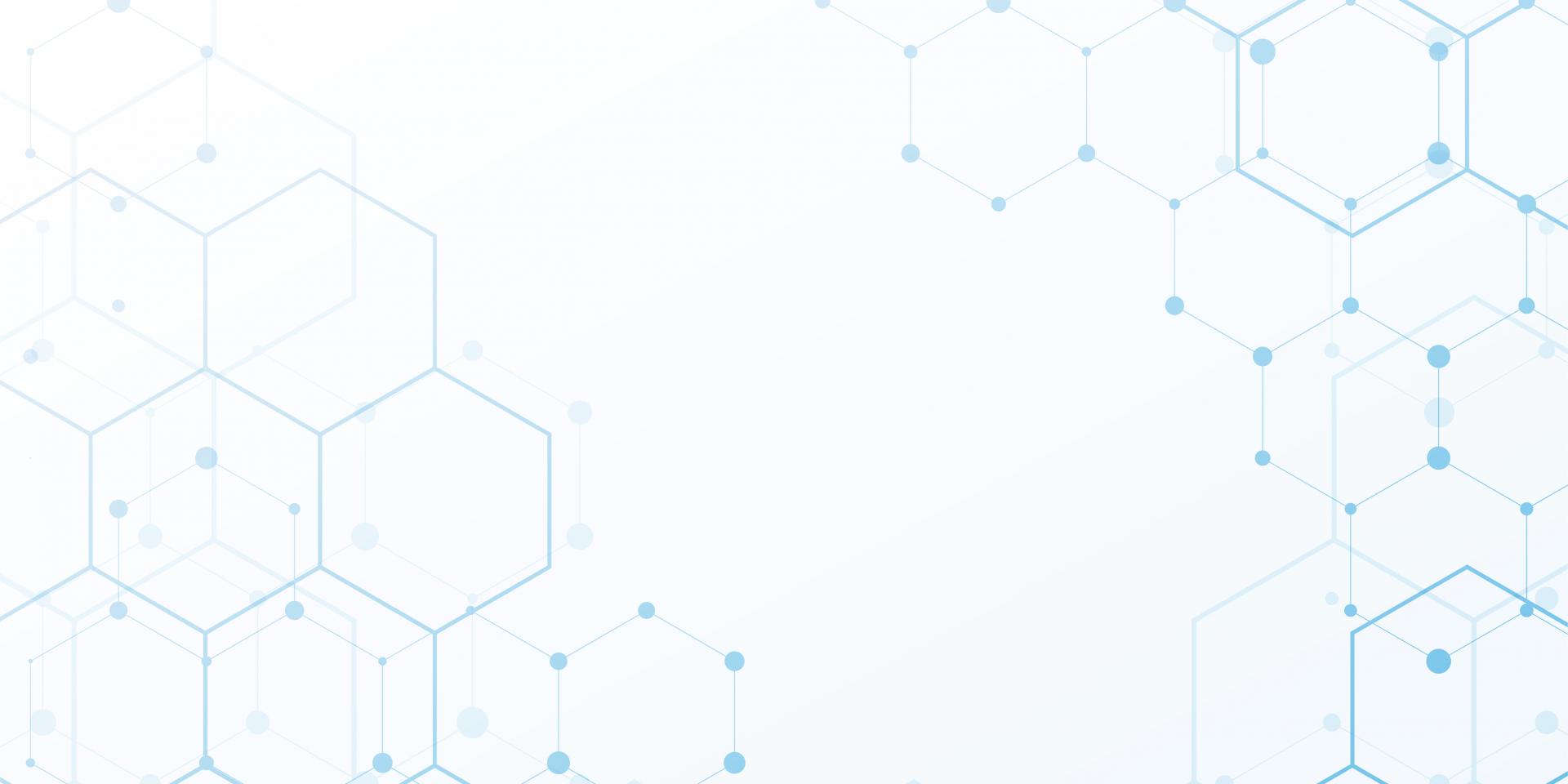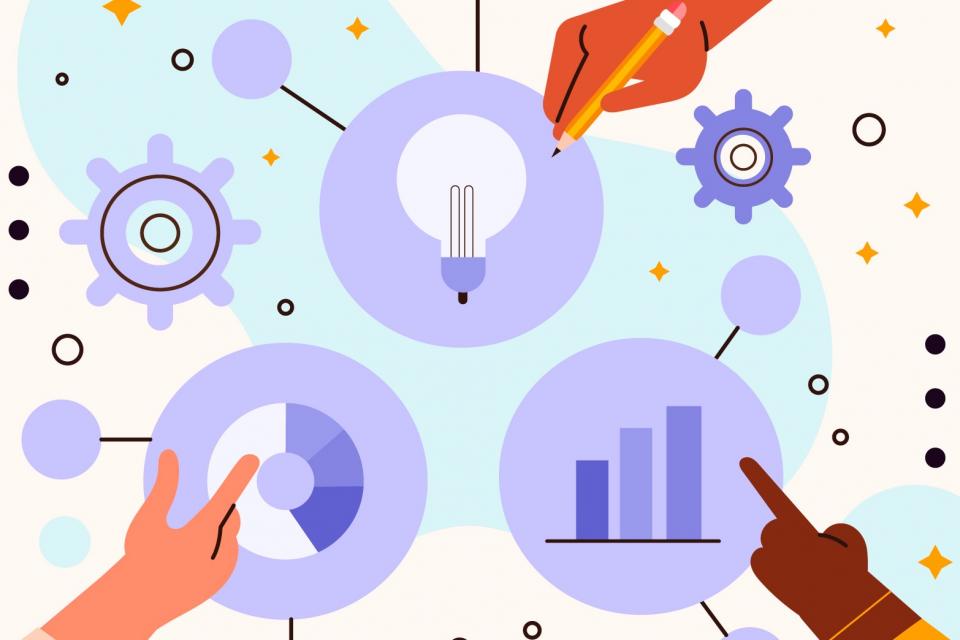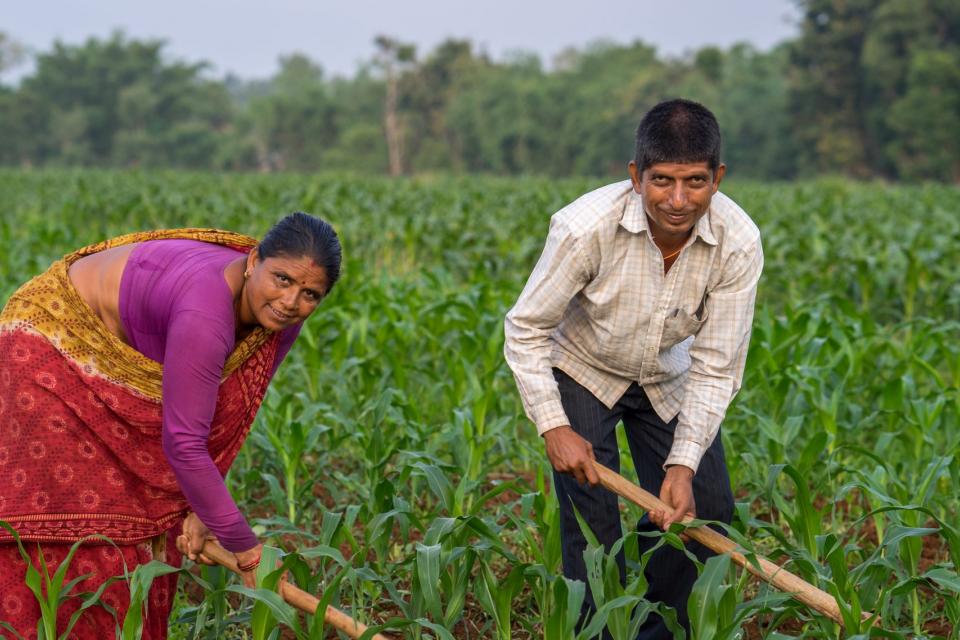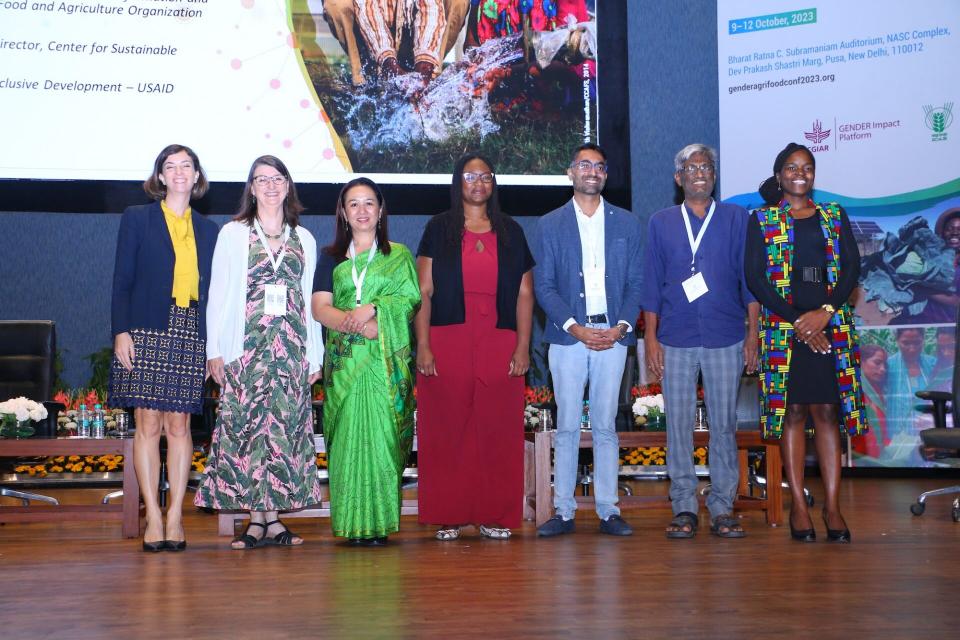Decolonizing agricultural science: Are we ready to embrace change?
 Image by starline on Freepik.
Image by starline on Freepik.
Decolonizing science is increasingly discussed within the CGIAR community. Recently, a panel of researchers explored whether we are prepared for this transformation and ready to embrace the change.
This blog post was authored by Shivani Chemjong as part of the CGIAR GENDER Impact Platform training on telling stories about agricultural solutions that work for women. This training took place, in part, during the 2023 CGIAR GENDER conference on October 9-12, 2023, in New Delhi, India. The blog post was first published by IWMI, but it is re-posted in full below.
--
The continued influence of colonialism on research and the need to structurally transform the processes and practices of science were the focus of a panel discussion at the CGIAR GENDER Impact Platform Conference in 2023. Centering local voices to break down the underlying power relationships between the researcher and the researched is a key part of decolonizing science. The discussion, focused on food production research, featured panelists from the International Water Management Institute (IWMI), World Fish, International Food Policy Research Institute (IFPRI), the Alliance of Bioversity International and the International Center for Tropical Agriculture (CIAT).

Photo: IWMI.
Navigating the contradictions of colonial legacy in research
IWMI’s Karen Nortje explained, that “Colonial ideas, and the legacy of outdated tools and frameworks that originate from them, often drive the behaviors of scientific and CGIAR researchers, even without us realizing this, and can affect research outputs.
“There seems to be a constant contradiction between what we say we need to do and what we actually do,” said Marlène Buchy, Senior Social Scientist at IWMI. “And what we need to do is listen to local voices, co-develop sustainable, inclusive innovations, and break down power relationships between researchers and food producers.”
The panelists pointed out the context of researchers constrained by artificial time frames driven by funding cycles and by key performance indicators revolving around publication in English-language refereed journals in the global north. Unfortunately, therefore, researchers often do not have the space to conduct genuine participatory and emancipatory research.
“In the initial stage of research ideation, we believe our approach will be successful, but we sometimes rush through projects to meet budget constraints,” said Rahma Adam of World Fish.
Bridging the gap and shifting the paradigm
Buchy pointed out that to close the “disconnect between our intentions and the actual implementation, we should not be scared to challenge our system.”
The panel suggested that change must come from senior management level to provide space for researchers to gradually close that gap between intention and implementation. But they also highlighted that donors need to be involved to better understand the gap between project objectives, ground realities and the constraints in bridging these distinctions.
The panel noted that the way many of us collect and value knowledge and “science” often neglects the diversity of knowledge and local contexts that could offer valuable insights to achieve more sustainable food-system management.
Feminist political ecology offers appropriate tools to challenge our ways of doing research, to locate and transform seats of unequal power relations.
Fresh perspectives on doing science to tackle complex problems
Huge, complex problems like the climate crisis, environmental degradation, farmer suicides, growing food insecurity and dependency, and pervasive under- and malnutrition in many countries cannot be addressed by the ideal models for agricultural developmental imagined in the global north and imposed around the world through various political and economic measures. Consequently, it is imperative to collaboratively design research projects with the community.
Additionally, Adam made a crucial recommendation to researchers to “gain a fresh perspective on problem-solving and develop a thoughtful strategy for disseminating our ideas.”
In the quest to decolonize agricultural science and embrace the change required by complex global challenges, it is essential that we draw on courage to challenge our existing systems, seek to bridge the gap between intention and implementation, and give power to local communities and their knowledge.
The panel featured Marlène Buchy – IWMI; Rahma Adam – WorldFish; Darshan Karki affiliated to IWMI; Purnima Menon – IFPRI; Eileen Nchanji representing the Alliance of Bioversity and CIAT; Karen Nortje – IWMI, and Charity Osei-Amponsah – IWMI.


